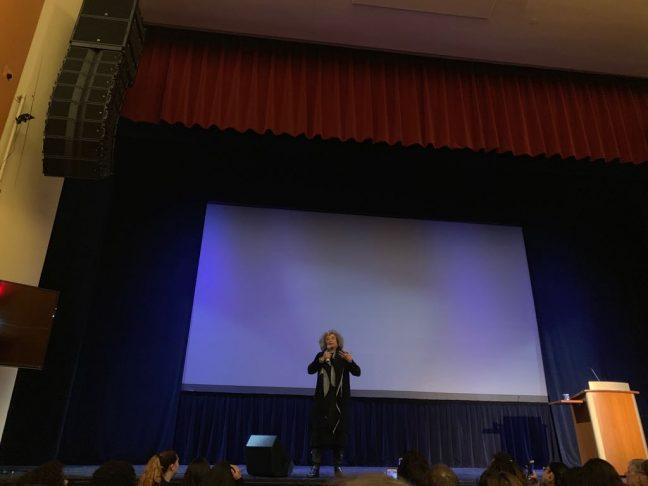In an event titled “An Evening with Angela Davis,” the scholar and activist explained how important young people are in politics to a sold-out Shannon Hall at Memorial Union Tuesday evening.
Davis visited the University of Wisconsin as part of the Wisconsin Union Directorate’s Distinguished Lecture Series. Past speakers have included activists Mariame Kaba and Tarana Burke.
In addition to authoring nine books, Davis is a founding member of Critical Resistance, a group that aims to abolish prisons, surveillance and policing, according to their website. Davis is also a professor emerita at the University of California-Santa Cruz’s History of Consciousness department.
During her lecture, Davis said she wanted the audience to find inspiration among the current state of affairs — hopefully in a radical direction.
“There are other things to mourn: the presence of men in the highest offices,” Davis said.
Davis said that to correct these current state of affairs, we need to rely on young people because they are the ones that generate hope for the future.
Davis referenced survivors of the Parkland shooting as one such inspirational example because they recognize the intersectionality of struggles. They have paired with black and Latinx people to work towards solving issues of gun violence, Davis said.
“Why do we invest in these apparatuses of violence for our so-called security?” Davis said. “And so we have to begin to imagine a world in which we no longer need these violent police forces that have inflicted so much pain and suffering on so many communities.”
Davis also said the young people who have stood up for Standing Rock are another important example of hope for the future.
Before coming to speak at UW, Davis said she looked at the demographics of the student population and was disappointed to find that African Americans make up only 2.9 percent of the student body, despite making up 6.7 percent of the population in the state of Wisconsin. Davis said the university has a long way to go to increase the numbers of black students on campus.
“[Universities] want diversity and they want inclusion, but they want the institution to function exactly the same way it did when the minorities were marginalized,” Davis said. “The questions [to consider] for the people who are in positions of relative power and institutions like these [are] how to acknowledge the structures of racism, the structures of patriarchy that are so much a part of the institution that they are totally afraid to let them go.”


